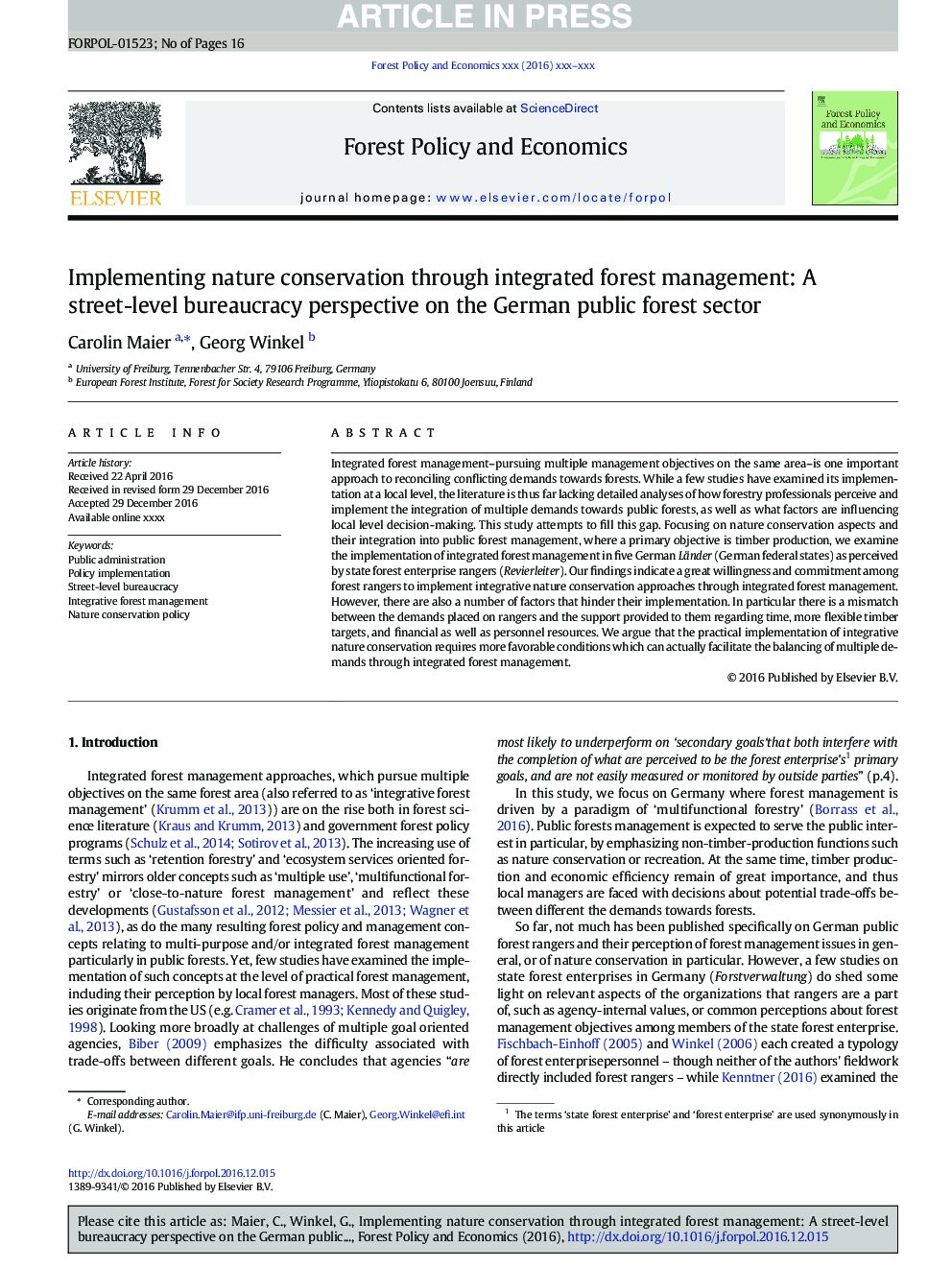| Article ID | Journal | Published Year | Pages | File Type |
|---|---|---|---|---|
| 4759752 | Forest Policy and Economics | 2017 | 16 Pages |
Abstract
Integrated forest management-pursuing multiple management objectives on the same area-is one important approach to reconciling conflicting demands towards forests. While a few studies have examined its implementation at a local level, the literature is thus far lacking detailed analyses of how forestry professionals perceive and implement the integration of multiple demands towards public forests, as well as what factors are influencing local level decision-making. This study attempts to fill this gap. Focusing on nature conservation aspects and their integration into public forest management, where a primary objective is timber production, we examine the implementation of integrated forest management in five German Länder (German federal states) as perceived by state forest enterprise rangers (Revierleiter). Our findings indicate a great willingness and commitment among forest rangers to implement integrative nature conservation approaches through integrated forest management. However, there are also a number of factors that hinder their implementation. In particular there is a mismatch between the demands placed on rangers and the support provided to them regarding time, more flexible timber targets, and financial as well as personnel resources. We argue that the practical implementation of integrative nature conservation requires more favorable conditions which can actually facilitate the balancing of multiple demands through integrated forest management.
Keywords
Related Topics
Life Sciences
Agricultural and Biological Sciences
Forestry
Authors
Carolin Maier, Georg Winkel,
